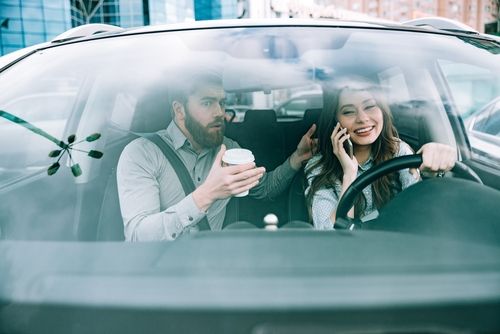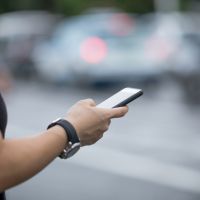
You Were the Passenger in a Car Accident in Tampa—Now What? 7 Things You Should Know
There’s something vulnerable about being a passenger in another person’s car. You’re putting your life into your driver’s hands. That takes a lot of trust. Even if they are the most conscientious driver, an accident can happen by no fault of their own.
Car accidents in Tampa are a common occurrence. Perhaps you’ve seen them on your commute down the I-4, ranked the most dangerous highway in America. When traffic slows to a turtle’s pace, you often drive past crash victims dealing with the police or taking photos of the damages.
Then, one day, it happens to you. You were a passenger and before you know it, you’ve joined the ranks of those who’ve experienced a car accident in Florida. Now what?
As the passenger what are your rights after a crash? Against whom do you file a claim? What if the driver is a family member or part of a rideshare service?
If you’ve been in a car accident as a passenger, read on.
1. When should I seek medical help?
Short answer: as soon as possible! It’s essential to see a doctor within days to assess your injuries. Symptoms may show up hours or even days after the accident, while the body is in shock. But it’s important not to ignore your injuries! See your doctor as soon as you notice any changes in your body.
It’s required to have received medical treatment within 14 days after the motor vehicle accident in order to use your Personal Injury Protection (PIP) benefits. PIP pays 80% of your medical bills and 60% of lost wages up to a limit of $10,000.00. However, you could only recover compensation up to the limits of the defendant’s car insurance.
Be sure to see a medical professional who will consider all potential injuries and not just your neck and back. If you forego seeking medical attention, it won’t help your personal injury claim. You’ll need doctors’ statements and a record of treatment as proof you have injuries from this accident.
2. What happens now?
The driver’s insurance company should contact you to discuss your claim, but you may have to call them yourself. Keep in mind, insurance companies aren’t your friends…they‘ll do anything to avoid paying claims. They also don’t want you to hire a lawyer (even though they have their own lawyers!).
If anyone calls you after an accident to get your case, watch out. They’re breaking the law and should be reported to the Florida Bar. Anyone who solicits is typically just in it to keep your insurance money for themselves.
It’s important you know what your rights are as a passenger. A lawyer will respect and preserve your rights as an accident victim.
3. What if I was in an Uber or Lyft?
Ride-sharing accident cases could be complex. The defendant’s insurance company will try to get you as little compensation as possible. These big companies have their own lawyers and insurance pros trying to protect them — they‘re not really there to help you. It’s highly recommended to have a legal team negotiate on your behalf to ensure the best results.
Too often, we see big insurance companies and powerful corporations take advantage of victims. The evolving regulations and laws surrounding rideshare services further complicate claims involving Uber or Lyft. Our personal injury attorneys already have experience with these type of cases and are fighting for and protecting clients injured in Uber and Lyft accidents. We can help answer your questions.
4. So, who’s liable for my injuries?
As a passenger, you may file a claim against:
- The at-fault vehicle owner and their insurance.
- The at-fault vehicle driver and their insurance.
- Your own insurance if you carry Uninsured Motorist (UM)/Underinsured Motorist (UIM) coverage on your policy.
- Your driver and their insurance.
The third one might make you uncomfortable if they’re a family member or friend, but this doesn’t mean you're blaming them for the accident. In fact, they may not be at fault.
5. What if the driver doesn’t have insurance?
This is where Uninsured Motorist (UM)/Underinsured Motorist (UIM) Coverage comes in handy if it is a part of your insurance.
Uninsured Motorist (UM) coverage protects you if you are in an accident with an at-fault driver who does not carry Bodily Injury (BI) liability insurance. Underinsured Motorist (UIM) coverage steps in when you're in an accident with an at-fault driver whose BI limits are too low to cover your personal injury damages.
6. What’s the best way to approach this?
We know all of this seems overwhelming, especially when you’re focusing on healing. A lawyer could help by sorting all the evidence and helping you find as much compensation as possible. At Rubenstein Law, we help our clients by making calls to the insurance adjusters, work to get you money for lost pay, and negotiate your medical bills.
7. When would I have to pay an attorney?
Most personal injury attorneys will not charge unless you win money. This is how we work. We don’t get paid a cent unless we succeed in your case. Call us for a free case evaluation. We're available 24/7. We’ll consider all the details to make sure you get all the help you need and the compensation you deserve.
With decades of experience, the attorneys at Rubenstein Law are well-versed in these cases and can help you when things may seem hopeless. Let us walk you through the difficult times. We're here to help. Call us at 1-800 FL-LEGAL.
NOTE: This post is intended to provide general information to our readers. None of the information contained in this post should be construed to constitute legal or medical advice. Laws vary by jurisdiction and cases often turn on minor differences in fact. Do not rely exclusively on any of the information contained in this post. Always seek further assistance from a legal or medical professional where necessary.




